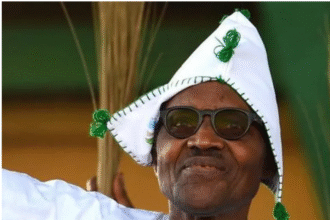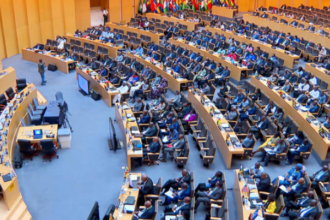HARARE, ZIMBABWE – Under mounting pressure to address the country’s persistent economic woes and growing political unrest, Zimbabwe’s President Emmerson Mnangagwa has appointed a new army chief, Major General Emmanuel Matatu, as the new Commander of the Zimbabwe National Army (ZNA), promoting him to the rank of Lieutenant General with immediate effect. General Matatu replaced General Anselem Sanyatwe, who was sworn in as Zimbabwe’s Minister of Sports.
General Sanyatwe had been the head of the ZNA since his appointment in 2019. His transition to a ministerial position marks a significant transition in the country’s military and political leadership.
The announcement of General Matatu comes at a crucial juncture as the nation grapples with soaring inflation, shortages of essential goods, and simmering discontent.

While the official statement cited no specific reasons, other than “routine rotation” as the reason for the change, analysts suggest the move could be linked to recent developments, including ongoing internal political struggles and governance lapses.
“This appointment could be seen as an attempt by the President to consolidate his power and ensure loyalty within the military, especially given the current economic climate,” said Oliver Bakkes, a Harare-based political analyst.
General Matatu’s appointment marks a significant shift in the military leadership. He is a veteran of the ZNA and is widely regarded as a loyalist of the president.
The outgoing army chief, General Anselem Sanyatwe, served in the position for six years and played a pivotal role in the ascendancy of the current president and the removal from office of former President Robert Mugabe. His departure comes as a surprise to some, fueling speculation about the underlying reasons for the change.
The timing of the appointment has drawn considerable attention. Zimbabwe is currently facing a severe economic crisis with alarming levels and widespread shortages of basic necessities. Citizens across the country have expressed their frustration with the government’s handling of the economy, leading to periodic protests and calls for reform.
The army has historically played a significant role in Zimbabwe’s political landscape, and any changes in its leadership are closely scrutinized. The new army chief’s actions in the coming months will be crucial in shaping the country’s trajectory as it navigates these turbulent times.
“The new army chief faces a daunting task,” said Bakkes. “He will need to maintain stability and ensure that the military remains impartial amid growing political tensions,” He added.
The appointment of General Matatu is likely to be met with mixed reactions, both domestically and internationally. The extent to which this change will impact Zimbabwe’s political and economic future remains to be seen. The international community will be watching closely to see how the new army chief will navigate the complex challenges facing the nation.









